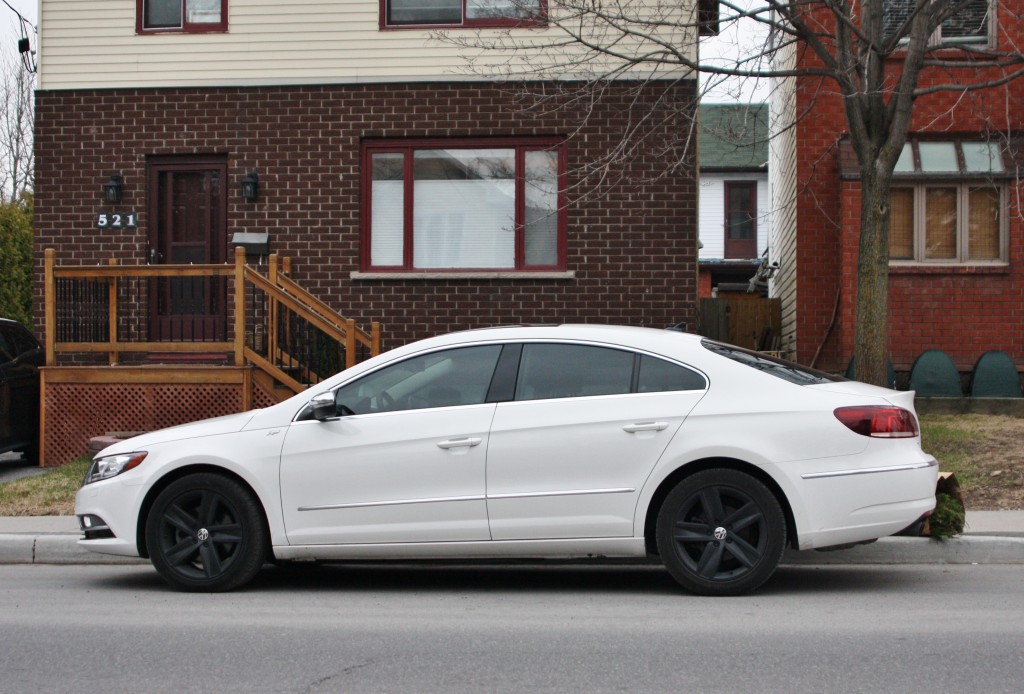“Hey, Bob – check out the new ride.” (gestures to his new baby in the parking lot)
“Oh yeah? Which one?”
“The coupe.”
“Sweet! You got an FR-S? How did Rachel let you get away with that?
“No, uh, the one next to it. The four-door.”
“Wait – what? Is that a Jetta?”
“No, it’s a Passat. The CC model. You know…it’s a four-door coupe.”
“Are they calling it that?”
Yes, the four-door coupe.
A modern-day enigma that isn’t a sedan – no, no – it’s just a four-door car that’s based on a sedan, but with a different roofline.
Doors, schmores – it isn’t the entranceway count, it’s the roofline that makes these babies what they are. Low…swoopy…squished. Whether it’s the Passatt CC, the Mercedes CLS, or the BMW 4-and-6 Series Gran Coupe, the body type (and its annoying terminology) seems here to stay.
“So what? What’s the big deal?” you ask. After all, there were ‘2-door sedans’ on the market for decades once upon a time.
This is certainly true. However, the term 2-door sedan was meant to differentiate that model from a coupe that was also in the lineup. Usually there was a business coupe or five-window coupe to go along with the more practical 2-door sedan. Think postwar Fords or Dodges.
Even as late as the early 80s, you could purchase a Ford Fairmont sedan, a 2-door Fairmont, or the Fairmont Futura coupe, with its rakish, basket-handle roof. The 2-door was just the sedan with fewer doors and no other exterior changes. The Futura was the one that brought the flash to the table (though, with 88 horsepower on tap from both the standard and mid-range engines, not the dash).
Why aren’t they just called sports sedans? After all, they’re just a sportier, sexier take on an existing model (or close to it). Well, in many cases, they could be. But, in other cases, the model is derived from something quite sporty to begin with (think BMW), or belongs to a make that has a dedicated trim level for that (think AMG) that can be applied to anything in the stable.
The whole issue raises another question, which is “What sedan can’t be called a four-door coupe?”
Is it all about a rakish roofline? Does this gorgeous specimen count?
Granted, there was no other version of Grand Prix four-door in the Pontiac stable. Nor is there a twin brother for the modern-day Ford Fusion or Chrysler 200, with their coupe-like rooflines. Or the new Chevy Impala or Audi A6, for that matter.
I guess four-door coupes exist solely to draw another (upscale) model out of an existing, popular model, thus widening the sales net while fleshing out the lineup with a new offering that’s not altogether new.
Basically, the reverse of the Studebaker Scotsman of the late 50s, where a new, lower-priced model was created by stripping down the existing Champion. Spreading the Champion into two models to capture the low-priced and mid-priced fields led to a sales boost for Studebaker, enough to carry the struggling company into the 1960s.

